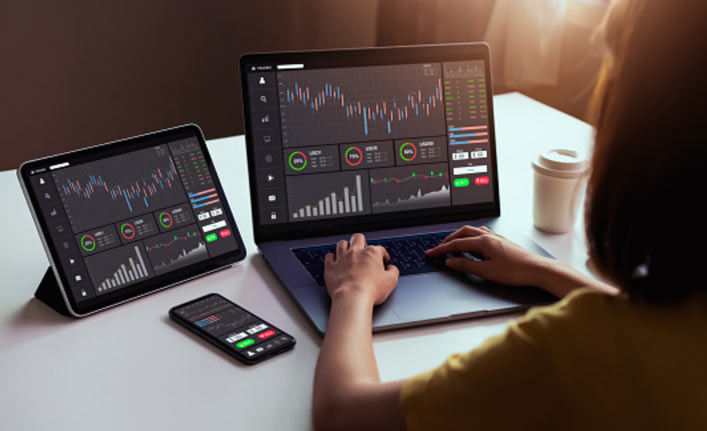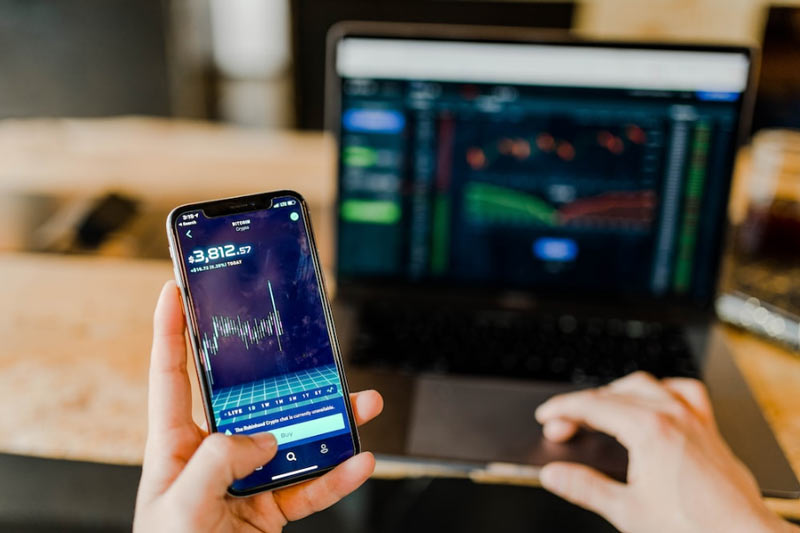How Much Money Do You Need to Start Day Trading
Oct 20, 2023 By Susan Kelly
Are you looking to start day trading but need to figure out how much money you need to get started? We've heard it all before. Day trading sounds intriguing, with stories of people earning huge profits in a short time frame, but knowing just how much money is needed can be tricky.
While the answer is more complex (it depends on various factors), We will provide an informative yet engaging guide that should help shed light on the financial requirements for entering the world wide web of day trading. Read ahead to learn exactly what and how much you need to start your journey into day trading today.
Day Trading and How Does it Work

Day trading is a form of stock market investing that involves buying and selling securities within the same day. Day traders typically open multiple positions throughout a trading session, closing them out before markets close.
This strategy aims to capitalize on short-term price movements by taking advantage of intraday price changes to generate profits. While it’s certainly possible to make money through day trading, it has its own unique set of risks and considerations which need to be understood before diving in head first.
How Much Money Do You Need to Start Day Trading?

When starting as a day trader, you want to ensure you have enough capital available to sustain yourself in good and bad times. The money you need to start day trading can vary wildly depending on your style, strategies, and goals. For example, a scalper may get by with a few hundred dollars in capital, while a swing trader might require many thousands of dollars to make consistent profits.
The general recommendation for any beginner is to start with at least $5000–$7000 in the capital. This should provide enough cushion for positions against you and buying power for larger trades when markets are more favorable.
When figuring out how much money is needed to start day trading, you must also consider other costs, such as software fees, data fees, or commissions. These across-the-board fees can add quickly and should be factored into your overall day trading budget.
It is important to note that the amount of money you have to start with differs from how successful you will be as a day trader. Trading skills and discipline are much more important than your account size.
It is also crucial to understand that investing in stocks involves substantial risk, and one should only trade capital they are willing to potentially lose.
Setting Up a Professional Trading Account
Choose a broker
The first step in setting up a trading account is selecting the right broker or platform. You need to research different brokers and look at their features and fees to determine which suits your goals and trading style best. You can open an account with a broker offering individual or corporate accounts.
Deposit the money
After selecting your broker, it’s time to deposit the money you plan to start trading with. Depending on the broker, you may use a debit card, credit card, bank transfer, third-party payment processor, or cryptocurrency for the deposit.
Fill out an application form.
Once you have chosen a broker, you must fill out an application form with all your personal information, such as name, address, social security number, etc., and deposit instructions.
Fund your account
You will then need to fund your account to start trading. Depending on the type of brokerage you have selected, you can use cash or credit/debit cards.
Activate and start trading.
Once the funds have been deposited, your account is ready to be activated, and you can begin trading. Make sure to familiarize yourself with the platform before getting started so that you are comfortable using it. You should also research the stock market and keep up-to-date on current events to ensure successful trades.
As a day trader, it is important to understand how much money you need to get started and what steps must be taken to open a professional trading account. By taking the time to research brokers and understand the risks involved with investing in stocks, you will be better positioned for success when day trading.
Making Smart Investments - Strategies to Maximize Profits & Minimize Losses
Once you have opened your trading account and are comfortable with the platform, developing a strategy that will help you maximize profits and minimize losses is important.
Do your research
The best way to do this is to thoroughly research the stock market and nurture an understanding of how it works. Make sure to stay up-to-date on current events that may affect the markets.
Set realistic goals
Setting realistic goals for what you want to achieve from day trading is also important. This includes both short-term gains as well as long-term strategies for wealth building.
Manage risk wisely
One of the most important steps in becoming a successful day trader is learning to manage risk wisely. This involves diversifying your portfolio and clearly understanding how much risk you are willing to take on.
Monitor the markets
It is important to monitor the markets closely to identify opportunities that may be beneficial. This requires patience and discipline, but if done correctly can lead to profitable trades.
By following these tips, you will be well-positioned for success when day trading. It also helps to have an experienced mentor or coach who can provide guidance and help you understand more advanced concepts. With the right knowledge and strategies, you can maximize profits while minimizing losses as a successful day trader.
FAQS
Is it easy to make 1% a day trading?
Making 1% a day trading is possible but requires skill, discipline, and experience. In addition to understanding the markets and identifying profitable trades, managing risk wisely to minimize losses is also important.
What are the risks of day trading?
The main risks of day trading include financial loss due to market volatility, emotional risk due to overtrading, and commission fees. Understanding these risks and managing them wisely is important to be successful.
How long is one trading day?
The length of a trading day depends on the market. In most markets, the trading day begins at 9:30 am and ends at 4 pm Eastern Standard Time (EST). However, trading can occur around the clock in some markets, such as the forex market. It is important to know when you can trade to be prepared. Some markets have extended trading hours on certain days of the week or holidays. It is important to check with your broker for more information about their specific offerings.
Conclusion
The amount of money you need to start day trading depends on the firm and type of trader you are. Brokers often require a certain amount of capital for margin accounts, while day traders may need some extra money to start out with, depending on the trading strategy they intend to adopt. Knowing these things makes assessing what works best for your financial situation and trading goals easier. Traders who find success often take their profits and reinvest them into their trading accounts, helping them reach higher earning potentials in the future.

Jan 01, 2024 Susan Kelly

Dec 29, 2023 Susan Kelly

Nov 08, 2023 Susan Kelly

Dec 26, 2023 Triston Martin

Dec 02, 2023 Susan Kelly

Nov 24, 2023 Triston Martin